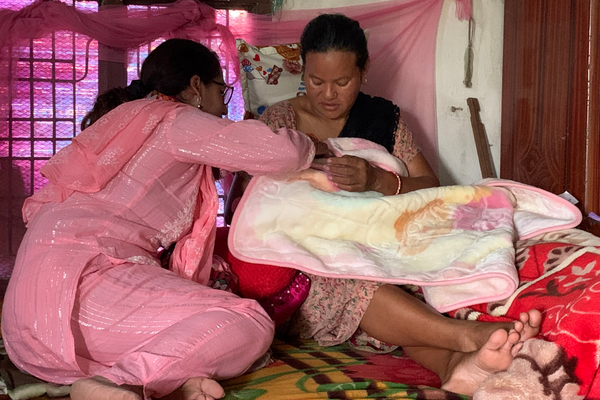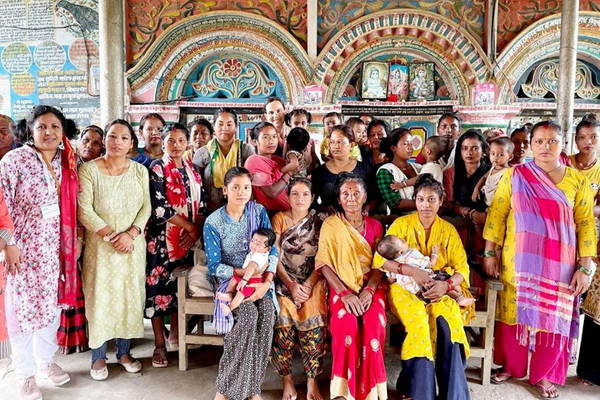NEPAL HEALTH PROJECT
Improve the health of pregnant women, young mothers and underprivileged newborns from slums
Landlocked between Tibet and India and with an estimated population of 30 million, Nepal is ranked 143 out of 191 countries in terms of quality of life*. The country is currently experiencing a historic transition from a centralized state to a federal and secular republic and has to deal with important challenges.
The last decade has had a strong internal migration, forcing the population to seek employment to leave the countryside to reach the cities. Industrial zones and slums have, thus, set up on the urban periphery, with major difficult living conditions.
This is compounded by a health care system with a lack of interpersonal communication skills, widespread abuse during care, disrespect for confidentiality and privacy, and the practice of medical procedures without patient consent.
Enfants du Monde and its local partner, the NGO Green Tara Nepal, work together in the province of Lumbini, in the south of the country, in order to improve the health of pregnant women, young mothers and their newborns living in these slums in peri-urban areas.
 Postnatal home visit
Postnatal home visit
Very high neonatal and infant mortality
In the province of Lumbini, neonatal and infant mortality is higher than the national average.
According to national indicators, pregnancy and childbirth remain a major cause of death, disease and disability among women of reproductive age in Nepal. In 2016, the maternal mortality rate was 239 per 100,000 live births against 5/100 000 in Switzerland**.
At the present time, 1 in 2 women do not carry out the 4 recommended prenatal check-ups during pregnancy, and in Lumbini district, less than 2 in 10 carry out postnatal health care check-ups. 7 in 10 women give birth at home. The infant mortality rate is 42 in 1,000 live births: well above the national average of 32 in 1,000.
Improve the quality of care and encourage women to consult for neonatal care and against COVID-19
Currently, women remain reluctant to seek maternal and child health services and they rarely know how to protect themselves and their babies from COVID-19.
Enfants du Monde and Green Tara Nepal have developed a training kit on the respect of the mother and the newborn to bring the health personnel to consider the rights, the dignity, the private life of the women and their babies and to communicate with respect and in all confidentiality with the patients, their partners and their families.
The kit also increases the teams’ knowledge of quality preventive and medical care and appropriate to the culture and the women’s needs.
The objective of this approach is to improve the care level and thus increase the women’s satisfaction and their consultations in health care centres.
The project’s impact (2022-2023)
- 1 team of 15 trainers trained
- 80 nurses, 40 paramedics, 40 administrative employees trained in maternal and newborn health care birth and protection against COVID-19
- 180 volunteer health workers trained to raise awareness in communities
- 20 antenatal care health facilities equipped with necessary maternal and neonatal health care materials as well as individual protection equipment against COVID-19
- 10,000 wives and 7,000 husbands benefit from health education sessions
- 65% of pregnant women and young mothers resort to 4 prenatal examinations
The project is carried out in close collaboration with the local and national authorities as well as the Government services of Nepal; in conjunction with the department of maternal, neonatal and child health and teenagers from the World Health Organization in Geneva for some input regarding the training of health personnel.
Sources:
*Human Development Index established by the United Nations in 2021-2022 which measures, among other things, access to education, health services, health, and a decent standard of living.
**Federal Statistical Office – Hospital medical statistics- Births and maternal health in 2017.
 Group of mothers receiving health education sessions in Pratapur.
Group of mothers receiving health education sessions in Pratapur.
